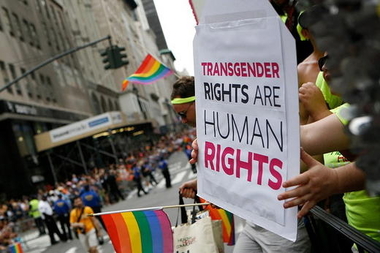Judge: Idaho must allow gender changes on birth certificates

BOISE, Idaho (AP) — A federal judge says Idaho can't bar transgender people from changing the sex listed on their birth certificates.
In a ruling issued Monday, U.S. Magistrate Judge Candy Dale said the rules by the Idaho Department of Health and Welfare violated the Equal Protection Clause of the U.S. Constitution, served no rational government purpose and put transgender people at risk by forcing them to disclose their status when they present identification documents.
"A rule providing an avenue to obtain a birth certificate with a listed sex that aligns with an individual's gender identity promotes the health, well-being, and safety of transgender people without impacting the rights of others," Dale wrote.
Dale gave Idaho until April 6 to begin considering applications to change the sex listed on birth certificates under new, constitutionally sound rules. The ruling also says reissued birth certificates can't include a record of the gender having been changed.
Most states already allow such changes. But Idaho was one of four — including Kansas, Ohio and Tennessee — that prohibited transgender people from changing their birth certificates to reflect their gender identity.
The ruling was a response to a lawsuit brought by two transgender women last year who said they faced hostility and harassment at places like grocery stores and government offices because they had to present identification that did not reflect their gender identity.
One of the women, identified only as F.V. in the lawsuit, said looks forward to being one of the first people to update her birth certificate in Idaho.
"I am thrilled and proud that my own state will be updating their policies, even though it required a court order to do so," said F.V. in a prepared statement issued by Lambda Legal, the law firm that represented her in the case.
In the court ruling, Dale noted the difference between biological sex and gender: The scientific consensus is that biological sex is determined by several mostly physical factors including external genitalia, which hormones are prevalent and brain structure, while gender identity is the intrinsic sense of being male, female, or another gender.
Dale also wrote that the medical understanding of biological sex and gender has advanced significantly in the last several decades, and there is now medical consensus that gender identity plays a role in an individual's determination of their own sex.
Both of the women who sued had undergone transition, the process of working to bring their lived experiences and outward appearances into alignment with their gender identities.
Idaho's vital statistics laws require that all amended birth certificates be marked as "amended," according to the court documents, including a record of the nature of the change, unless the change is a minor correction made within a year of the original error, for a voluntary acknowledgment of paternity and non-paternity, or for changes to name and paternal and maternal information in instances of adoption.
As the lawsuit began moving through the court system, Idaho's attorneys admitted the state policy was unconstitutional, but said the only way to change the policy would be through a court ruling.
There is no conceivable, rational government interest in "a prohibition against changing the sex designation on the birth certificate of a transgender individual who has undergone clinically appropriate treatment to permanently change his or her sex," the state's attorneys noted in one court document.
The judge didn't detail what the new rule should look like, but said that any new rule must not subject one class of people to any more onerous burdens than the rest of the population.
Scott Graf, the spokesman for the Idaho Attorney General's office, declined to comment on the ruling.
Copyright Associated Press. All Rights Reserved.
The Gayly. March 7, 2018. 10:35 a.m. CST.





